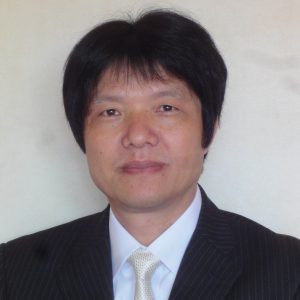
De-Xing HOU, Ph.D.
President of FOHIS
Dr. De-Xing Hou is a Professor of Food Function and Nutrigenomics at Kagoshima University of Japan. He graduated from Hunan Agricultural University (1981), and received two kinds of Ph.D. from both Kagoshima University (1991) and The University of Tokyo (2006). He worked on transcriptional factors at RIKEN of Japan as a postdoc from 1991-1997. Then, he was appointed to the Department of Food Science and Biotechnology, Kagoshima University from an Associate Professor to Professor. Dr. Hou also worked at Cornell University, Pittsburgh University and NIH-NCI of U.S.A as Visiting Scientist (2006-2007). His current research interests include the identification of chemopreventive effects and molecular mechanisms of dietary foods and bioactive natural products using molecular and multi-omics analysis. Dr. Hou has published more than 151 peer-reviewed papers. His research in transcriptional factors are published in some highest-ranking journals such as Nature, Nature Genetics and EMBO Journal, and his works on bioactive natural products are highlighted in Carcinogenesis, Free Radic Biol Med, Antioxid Redox Signal. He is the Founding President of Food for Health International Society (FOHIS) and chaired several international congress or symposiums in the field of food and function. Dr. Hou is also working as Associate Editor of several journals such as Molecular Carcinogenesis, and a member of Editorial Boards of
journals.

Dr. Norma L. Heredia
She studied the Bachelor, Master in Science and Doctor in Science in Microbiology. She is currently professor and Head of the Laboratory of Biochemistry and Genetics of Microorganisms at the Faculty of Biological Sciences of the UANL. She is a member of the National Researchers System of Mexico, was president of the Mexican Academy of Sciences Northeast Region and president of the Mexican Association for Food Protection. Her principal research interest is the physiology, epidemiology and control mechanisms of enteropathogenic microorganisms, producing around 99 documents (articles in journals and chapters of books). She has advised 64 students (7 Doctorate, 30 Master, and 27 Bachelor) and participated with 406 contributions in national and international forums in more than 13 countries. She is currently involved with Emory University, North Carolina State University and the Food and Drug Administration (FDA) in projects supported by US government. She also participates in the industry in training and resolution of problems through extension services in her laboratory.
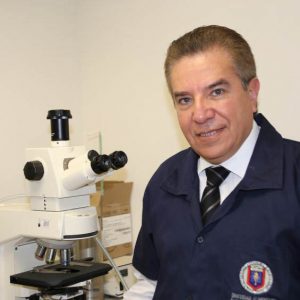
Dr. Santos García
Dr. Garcia is professor at the Universidad Autonoma de Nuevo Leon in Mexico,. He has been a visiting scientist at the University of Massachusetts, the National Animal Diseases Center, USDA in the USA, and the University of Kagoshima in Japan.
He has served on the Management Committee and the Editorial Board of the Journal of Food Protection, Food Biotechnology, Microbiological Discovery, and other journals. As a member of the Strategy Group of the Institute of Food Technologists, the Mexican Academy of Sciences, the Advisory Committee of the International Foundation for Science and other organizations, he has promoted food safety at an international level. He has co-authored or coedited seven books for food safety professionals, in addition to having been an adviser for 15 doctoral, 31 Master and 21 Bachelor of science students. Dr. García has received several awards including the „International Leadership Award and the Harry Haverland Award” by the International Association for Food Protection.

Dr hab. inż. Zuzanna Goluch, prof. UE
Working as an associate professor at the Department of Food Technology and Nutrition, the Faculty of Production Engineering of the Wrocław University of Economics. She conducts research on:
1) assessment of the impact of dietary supplements and fortified foods on metabolic pathways in humans and model animals
2) quality and safety of food
3) assessment of diet, nutritional status and body composition of the population: in various physiological conditions, using alternative diets, from various professional groups
4) the impact of healthy nutrition education on changes in the eating behavior of the population.
In the Wrocław University of Economics, she is the head of the Postgraduate Studies „Dietary supplements and fortified foods”. At The Polish University Abroad in London in Great Britain she is the visiting professor and head of the Psychodietetics Postgraduate Studies. In addition, she is a member of the Polish Society of Nutritional Sciences, Polish Society of Food Technologists, Polish Gerontological Society and Polish Zootechnical Society.

Dr hab. inż. Andrzej Okruszek, prof. UE
Dean of the Faculty of Production Engineering of the Wrocław University of Economics, head of the Department of Food Technology and Nutrition. In his scientific and research activity he has conducted and still conducts research in the area of issues related to the assessment of raw materials of animal origin. His academic achievements cover several research areas, including: the impact of genotype, nutrition, feed additives and ante-mortem turnover of pigs and cattle on the slaughter value of carcasses and meat quality, with issues related to scientific and research activity being related to with the assessment of the genotype of various species of aquatic poultry and its impact on the quality and nutritional value of meat raw material obtained from them. He is a member of The World’s Poultry Science Association, Polish Society of Food Technologists and the Chief Technical Organization among others.
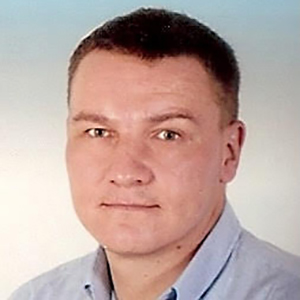
Dr hab. inż. Artur Rybarczyk, prof. UPWr
Working as an associate professor at the Department of Nutrition and Feed Studies, Faculty of Biology and Animal Breeding in Wrocław. In his research and development, he conducts research on:
1) the impact of health supplements, as an alternative to antibiotics, on microbiota, fattening efficiency and quality of poultry meat and pigs
2) the effect of antibiotics and the residues of their metabolism on the quality of raw pork
3) the effect of genetic factors, ante-mortem and slaughtering on the quality of pig carcass and meat
4) quality assessment of meat raw material obtained from rabbits, sheep and poultry. In addition, an expert in the field of post-mortem performance, meat processing and meat production technology in opinions for the Courts and Tax Control Offices.

Dr hab. Małgorzata Kwiecień, prof. UP Lublin
Working in the Institute of Animal Nutrition and Bromatology of Faculty of Animal Sciences and Bioeconomy, University of Life Sciences in Lublin in the discipline of zootechnics and fishing.
Research Areas:
1. Optimization of minerals in mixtures for poultry.
2. Impact of various feeds and feed additives on production effects, health status and the quality of animal products sourced from different animal species (cattle: cows, sheep, pigs, poultry)
3. Analysis of nutrients and minerals in human nutrition.
4. Tannic acid as a factor limiting the toxic effects of Cd and Pb on the body.
5. Content of micro- and macronutrients as well as Pb and Cd in food products.
6. Aluminum silicates as ammonia sorbents secreted during biodegradation animal excrements.
7. Capon as a food product.

Dr hab. Anna Winiarska-Mieczan
Working in the Institute of Animal Nutrition and Bromatology of Faculty of Animal Sciences and Bioeconomy, University of Life Sciences in Lublin in the discipline of food and nutrition technology
Research Areas:
1. Impact of slaughter animal nutrition on their meat quality and carcass quality
2. Analysis of Polish people diet
3. Content of minerals, including toxic metals, in food – analysis safety
4. Nutritional methods of limiting the absorption of Cd and Pb in tissues and limiting adverse effects of these metals on the body – model studies in rats
5. Fatty acids from food
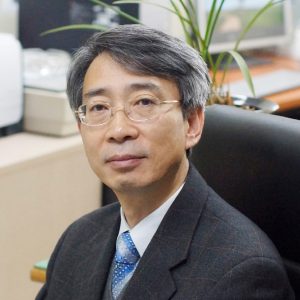
Prof. Jung Sup Lee
Professor of Department of Biomedical Science at Chosun University, Republic of Korea. He is also serving as a Chief of BK21-plus program (called RCBCT), which is being supported by Ministry of Education, Korea and was a Dean of College of Natural Sciences, Chosun University from 2015 to 2017. He has established and led a National Research Center, so called Research Center for Proteineous Materials (RCPM) from 2001 to 2009.
He received his Ph.D. on 1991 from Seoul National University, Korea, where he studied on the structures and functions of DNA repair genes. He set up his own research group at Chosun University in 1992. He then carried out his researches on DNA repair, genome instability, and a variety of proteases controlling in signal transductions, leading to inflammatory responses and autophagy activation, at his own laboratory and also at foreign Universities, including the University of North Carolina at Chapel Hill, USA (1997), Okayama Prefectural University, Japan (2002), and Meiji Pharmaceutical University, Japan (2003). He is an active member of domestic and international academic societies and also acts as an editorial board member for the journals, including “Molecular Medicine Reports” (Greece) and “Korean Journal of Biological Science” (Korea).
His overall research area is Molecular Cell Biology and Biochemistry, and his current research interests include:
1) Inflammatory responses and autophagy activation, which can be induced by proteases,
2) Various proteolytic enzymes that are involved in blood coagulation and fibrinolytic process,
3) Molecular cloning and characterization of genes that play a role in mammalian cell proliferation and DNA damage, and more recently
4) Molecular and biochemical studies on diagnostic biomarkers, specially related to Alzheimer’s disease.
Until now he published 106 papers in international journals, including Nature Cell Biology, Human Molecular Genetics, Journal of Bacteriology, Scientific Reports, Journal of Clinical Medicine and BBRC, and presented his data more than 162 times at domestic and international conference as an invited speaker and so on.
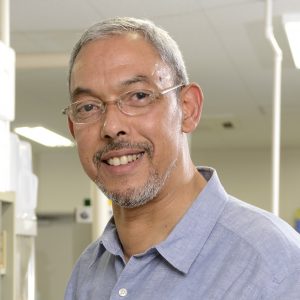
Prof. Hisham R. Ibrahim
Hisham Ibrahim is currently a Professor of Food Biochemistry and Structural Biology at Kagoshima University (Japan). He obtained his PhD degree in Structural Biology and Protein Engineering from Tottori University (Japan) in 1993. He worked as a research group leader in Taiyo Kagaku Central Research Institute (Mie, Japan) from 1993-1995. In 1995, he was appointed to the Department of Food Science and Biotechnology, Kagoshima University from Assistant Professor to full Professor. Dr. Ibrahim pursued research at the Center for Antimicrobial Research (CAR), California State Polytech University, Los Angeles (USA) as visiting scientist from 2000-2001. He is a conference organizer and chair in the American Chemical Society (ACS) and the American Oil Chemists Society (AOCS). He is an Editorial Board of Journal of Developing Drugs, Journal of Insights in Medical Science, Journal of Functional Foods in Health and Disease, and Journal of Food Science and Engineering.
His research focuses most on the discovery and development of bioactive peptides and proteins with therapeutic potential to fight infections, cancers and inflammatory diseases. Other research relates to the development of novel drug-delivery system for specific targeting of drugs into their intracellular targets by using food proteins combined with nanotechnology. Dr. Ibrahim work could lead to new cures for cancers, inflammation and complicated infectious diseases.
He succeeded in introducing several scientific findings in reputable international journals and in well-recognized books.
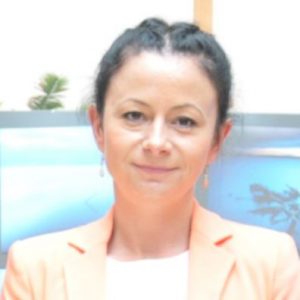
Dr Barbara Król
Assistant professor in the Animal Nutrition and Feed Science Department. She is an animal scientist. Her research activity is focused on animal metabolism, physiology of nutrition, feed value of agri-food industry by-products, including by-products of biofuels production from European renewable energy sources and their inclusion to livestock nutrition. She has written 39 scientific papers, and 30 conference short reports and posters. She participated in 3 research projects. She collaborates with agricultural advisory centers in Poland to transfer knowledge, innovations and best practices from university research experience to regional and national rural development. Dr. Barbara Król is a coordinator of two international projects: Rational Livestock Nutrition in Rural Areas (2014-2017) and Sustainable Entrepreneurship based on Multifunctional Agriculture (2017-2019) – and a leader of partner institution in another three projects implemented under Erasmus+ Strategic Partnership for Innovation and Good Practice.

Dr Maja Słupczyńska
Scientific worker in the Animal Nutrition and Feed Science Department. Her research area is connected with animal metabolism, physiology of nutrition and mineral nutrition of animals. She participated in 5 research projects founded by Ministry of Science and Higher Education and 1 co-founded by the European from the European Regional Development Fund within the Innovative Economy Operational Programme 2007-2013. Her scientific achievements, in the form of published articles and other papers, cover a total of 42 items, of which 11 are articles published in journals indexed in the Journal of Citation Report, 21 are articles published in journals reviewed in English and 10 are articles in peer-reviewed journals in Polish. She was a co-author in 5 chapters of the monograph in English or another foreign language and 5 chapters in scientific monographs in Polish. She has also presented the results of research actively participating (reports, posters) in national (31) and international (37) scientific conferences. She was also a co-author of 5 papers delivered on commission at national and international conferences.
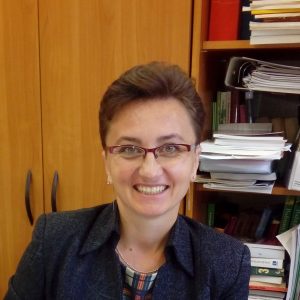
Dr Anna Szuba-Trznadel
Scientific worker in the Animal Nutrition and Feed Science Department, the Faculty of Biology and Animal Science of the Wroclaw University of Environmental and Life Sciences. Scientific research, which she actively conducts, concerns the topics of: yeast and products containing isolated active substances; mineral and organic sources of microelements; feed additives which improving animal productivity and their health status, tryptophan and valine levels in feed. All topics are related to pig nutrition. She is a member of the Polish Zootechnical Society since 2000.
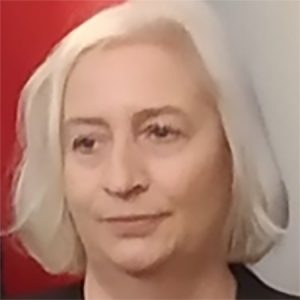
Prof. dr hab. inż. Renata Klebaniuk
Working in the Institute of Animal Nutrition and Bromatology of Faculty of Animal Sciences and Bioeconomy, University of Life Sciences in Lublin, Poland. Discipline of animal science and fisheries
My research interests and topics are mainly focused on the physiology of nutrition and analysis of the possibilities to improve production and health indicators in farmed animals with consideration of the quality of raw materials of animal origin.
My research interests have also included issues related to analysis of nutrients and minerals in food and in the broad-sense human nutrition. They were focused on both the diet of children, adolescents, adults, and the elderly as well as quantitative and qualitative assessment of raw materials and food products.
The investigations were focused on assessment of the impact of specific feeds of native origin on animal health in terms of the quality of meat and milk and their safety in human nutrition.

Dr. Kalidas Shetty
Dr. Kalidas Shetty is currently the Associate Vice President for International Partnerships & Collaborations and Founding Director of Global Institute of Food Security and International Agriculture-GIFSIA & Professor of Plant Science at North Dakota State University, Fargo, ND. From 1993-2012 he was a faculty as Professor to Assistant Professor of Food Science and Biotechnology in the Department of Food Science at the University of Massachusetts-Amherst. He received his BS from the University of Agricultural Sciences, Bangalore, India majoring in Applied Microbiology and MS/PhD. from the University of Idaho, Moscow, Idaho, USA in Microbiology. He then pursued postdoctoral studies in Plant Biotechnology in Japan (National Institute of Agro-Biological Sciences, Tsukuba Science City) and Canada (University of Guelph) prior to joining the University of Massachusetts Amherst in 1993 as Assistant Professor of Food Biotechnology. In January 2013 he joined North Dakota State University in Fargo, North Dakota.
Dr. Shetty’s research interests focus on critical role of cellular and metabolic basis of oxygen biology for advancing new innovations in Life Sciences and especially Agricultural and Food Innovations that advance global food security and health in a sustainable environment. His specific research interests focus on redox pathway-linked biochemical regulation of phenolic phytochemicals in food crops using novel tissue culture, biochemical, bioprocessed and fermentation systems to add value to diverse food systems. This focus is contributing to very innovative advances in the areas of crops for health, post-harvest biology, nutraceuticals, functional foods and food antimicrobial strategies as critical innovations to advance food security in addition to malnutrition and hunger challenges. In particular, he has developed an innovative “Foods for Health” and “Therapeutic Horticulture” research platform to counter diet-linked chronic diseases and cognitive/mental health challenges. The breeding and designing of crops and their food ingredients coupled to beneficial bacteria (soil and plant microbiome) are foundations for combating chronic diseases such as type 2 diabetes, cardiovascular disease and mental health which serve as the basis of new biochemical rationale for healthy whole food design integrated with living plant systems and beneficial microbiome for advancing global food security and health for quality living. The rationale of these platforms have relevance for managing malnutrition challenges from maternal to child health and non-communicable disease challenges globally.
Additionally in the context of post-harvest biology, food safety and preservation the susceptibility of bacterial food pathogens to phenolic phytochemicals at low pH (using fermented food systems) coupled through host tissue redox-linked pathways is his major interest in developing new food preservation and safety strategies and antibiotic replacement technologies with crop food ingredients coupled to probiotics. He has published over 210 manuscripts in peer-reviewed journals and over 45 as invited reviews and in conference proceedings. He holds 6 US patents. Dr. Shetty is the editor-in chief of the journal „Food Biotechnology”, published by Taylor and Francis) and Associate Editor of “Journal of Food Science & Technology (Springer). He is also on the editorial board of 4 additional journals in the areas of Food Science and Technology. He has served on peer review research panels for National Institute of Health, National Science Foundation, United States Department of Agriculture and Jefferson Science Fellows Program of the National Academies & US Department of State. In 2004, Professor Shetty was selected by US State Department as the inaugural Jefferson Science Fellow to advice on scientific issues as it relates to International Diplomacy and International Development.

Dr hab. inż. Joanna Wyka, prof. UPWr
She works as an associate professor at the Department of Human Nutrition, Faculty of Biotechnology and Food Sciences of the Wrocław University of Environmental and Life Sciences. She conducts lectures and exercises on the basics of human nutrition, dietetics, food hygiene and toxicology for students of various fields and faculties, as well as several UPWr Postgraduate Studies students. She conducts research on assessing the diet of different age populations (including children and adolescents), the impact of various nutrients on health, and psycho-social problems in the development of metabolic diseases (including obesity, atherosclerosis). She conducts nutrition education addressed to students, among others Wroclaw network of schools promoting health and actively cooperates with the Department of Health and Social Affairs of the City of Wrocław. In addition, she is a member of the Polish Society of Food Technologists.
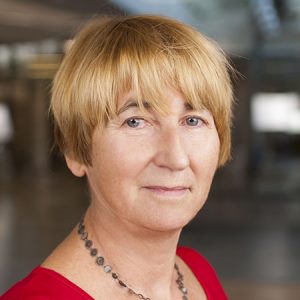
Prof. dr hab. inż. Janina Wołoszyn
Professor at the Department of Food Technology and Nutrition, Faculty of Production Engineering at the Wrocław University of Economics. She conducts research mainly on poultry meat regarding the influence of various physical factors (temperature, type of environment, storage time, type of packaging, pH), chemical (e.g. food additives, composition atmospheres in the packaging), and biological (e.g. genotype, line type, lineage, biochemical muscle state) on:
1) functional properties of muscle proteins (enzymatic activity, water absorption, gelability, leakage, emulsifying properties etc) and lipid stability,
2) quality of meat and meat products (color, chemical composition, sensory profile, rheological properties).
She is a member of The World’s Poultry Science Association, Polish Society Food Technologists and the Chief Technical Organization.
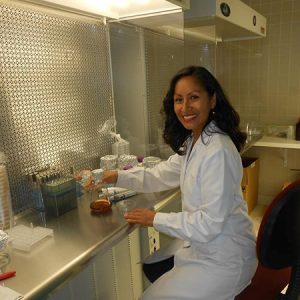
Dr. Lena Galvez Ranilla
She has a Doctor degree in Food Science (University of Sao Paulo- Brazil) with one-year of doctoral research at the University of Massachusetts (USA). She is currently a professor and researcher at the Universidad Catolica de Santa Maria (Arequipa – Peru) and her main objective is to study the Peruvian food biodiversity for its valorization, sustainable use and potential addition of value targeting the improvement and valorization of Peruvian indigenous food systems and Andean agriculture.
She is working on following research lines:
1) Metabolomic analysis of Peruvian food biodiversity with focus on phenolic antioxidants and other bioactive compounds.
2) Application of celular and biochemical models for the evaluation of the in vitro antioxidant, anti-hiperglycemic, anti-hypertensive, anti-obesity, antimicrobial and probiotic effect of plant-derived foods from Peruvian biodiversity.
3) Use of the proline-linked penthose phosphate pathway as a model for the study of phenolic compound biosynthesis, the evaluation of stress factors and the increase of antioxidant response.
She has collaboration research networks with the Global Institute of Food Security and International Agriculture-GIFSIA at North Dakota State University (USA), Pontificia Universidad Catolica de Valparaiso (Chile), University of Sao Paulo (Brazil) and Universidad Nacional Agraria La Molina (Peru). Recently, she has been awarded with the L’ORÉAL – UNESCO prize for Women in Science in Peru (2018).

Dr hab. inż. lek. med. Dariusz Włodarek
Medical doctor, dietitian and nutritionist. A graduate of the Faculty of Human Nutrition and Consumption SGGW in Warsaw and the First Faculty of Medicine at the Medical Academy in Warsaw. Postdoctoral research in the field of food technology and nutrition (agricultural science), specializing in human nutrition and dietetics. Academic teacher. Head of the Dietetics Department of the Faculty of Human Nutrition and Consumption SGGW in Warsaw. Author of dietetic textbooks and a number of articles in this field.
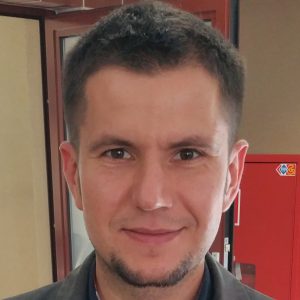
Dr Kamil Sierżant
Working in the Department of Animal Nutrition and Feed Science, The Faculty of Biology and Animal Breeding in Wrocław University of Environmental and Life Sciences
Research Areas:
1) Antioxidant properties of natural polyphenols and the mechanisms conditioning their antioxidant and biological activity.
2) The use of selected polyphenolic sources as the bacteriostatic additives in poultry nutrition and the factor protecting feed fats against peroxidation.
3) Development the effective optimization procedures for further determining the most efficient concertation of phytogenic additives in selected feeds for livestock.
4) Tissue-specific responses of antioxidant pathways as the important biomarker of oxidative stress.
